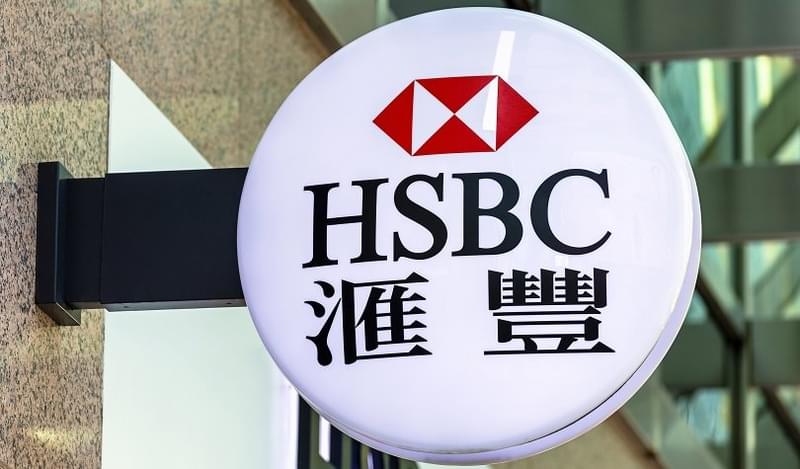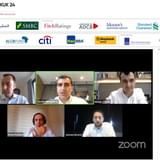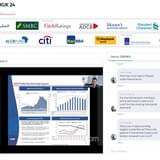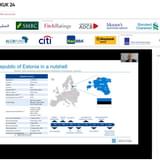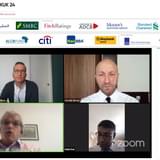What is the outlook for the wholesale banking market in Turkey in 2017? What are some of the most influential factors at play and which sectors do you think will drive credit activity in the country?
In the last 2 years, the main strategy of the wholesale banking client base has been to manage their existing exposures by means of refraining from more leverage and limiting the impact of Turkish Lira's (TRY) depreciation against hard currencies on their balance sheet and P&L. Our experience showed that corporates that borrow in USD either refinance their bank loans before the Fed rate hike or switch to EUR funding in order to benefit from comparatively low rates. Corporates also began to pay greater attention to foreign currency hedging as the depreciation of TRY against USD by 40% since August 2014 had a significant impact on bottom-line profits. We expect the same customer behaviour to prevail in 2017 as well; unless the domestic and regional news flow for next year impacts it in a more positive or negative way.
We expect that the Turkish banking sector will continue to grow, albeit at a moderate pace, despite volatile macroeconomic conditions driven by both local and global developments owing to strong regulatory infrastructure, a robust capital base and the resilient economic performance of Turkey. Loan market activity is expected to be mainly composed of conventional working capital facilities with limited opportunities in the structured lending front as corporates are either diligently reviewing greenfield investment decisions or postponing them until such time when market conditions are more favourable.
Turkey’s target to be among the world's top 10 economies by 2023 is largely dependent on Turkey’s ability to invest in its infrastructure to boost productivity, improve its competitiveness and address its structural challenges. An estimated US$350bn in financing is required across healthcare, energy and transportation investments, which are priority sectors for Turkey. We believe this will drive credit activity in the country in 2017 and onwards.
How do you think the recent downgrade will affect Turkish capital markets, and the outlook for local vs. hard currency funding?
In the aftermath of S&P’s initial downgrade action following the 15th of July and the positive outcome of the September FOMC meeting, we actually observed a normalisation on the secondary spreads across all sovereign, financial institution and corporate bonds. The initial market response to the Turkish sovereign downgrade by Moody’s on the 30th of September has been limited compared to the widening wave we have observed in the week following the coup attempt where Turkish papers were sold off by investors and secondaries were widened by 75 to 150bp in all asset classes. Turkish 5-year CDS reached the highest level on the 20th of July at 289bp which normalised gradually and Turkish 10-year bonds are trading at a rate that regained half of the losses after the first downgrade by S&P. We have seen follow-on downgrades by Moody’s on the corporate and financial institutions space which also impacted the secondary performance of these assets on the capital markets front.
Although the limited market response so far is welcome news, in the short term, the downgrade may have negative implications as an investment grade rating is a prerequisite for some funds to invest in fixed income assets. We believe it will be very important for the sovereign or a sub-sovereign or a systemic bank to open the market with a new issuance and bear both the new issue premium and first time issuer disadvantages, if any. This will certainly provide more concrete guidance about the investor sentiment towards Turkey.
Turkish corporates favour FX denominated funding to TRY because of the significant interest rate differential. Turkish banks raise the required FX financing via short term, often 1-year syndicated loan facilities at highly competitive rates. Given the loan-to-deposit ratios being above 100% across nearly all sectors, the banks reach out to wholesale funding sources particularly in capital markets, such as Eurobond, private placement and International Finance Institution (IFI) funding to be able to minimise the maturity mismatch problem (ie. funding long term assets with short term liabilities). We expect Turkish banks to reflect the increase in their cost of funding to end-users in a gradual manner, but we do not expect any considerable shift in the market.
In terms of local funding, Turkey benefited from the favourable global market conditions in 2016 where the Central Bank decreased the overnight lending rate 5 months in a row. However, one of the most pronounced structural challenges of the Turkish economy is the savings gap problem. Standing at around 16%, Turkey has one of the lowest savings to GDP ratios among the G20 countries leading to current account deficit to finance investments. Turkish banks’ main source of funding for TRY is customer deposits and this base is under pressure due to the slowdown in the GDP growth. A sustainable and longer- term local currency funding base will ultimately depend on an increase in domestic savings.
Therefore Central Bank rate cuts did not have a major impact on local funding for wholesale customers. Following the coup attempt and in the aftermath of the rating downgrade, the Turkish Treasury and Turkish Banks had several domestic bond issuances in TRY the auctions of which have received strong interest from investors with considerable oversubscriptions. We believe that these are the signs of a short term stable outlook for local funding.
How do the dynamics of the syndicated lending market compare with capital markets? Are borrowers currently more comfortable with one at the expense of the other?
The Turkish domestic bond market remains mainly dominated by government bond auctions and issuance from financial and non-bank financial institutions. To date there have been relatively limited corporate bond issuances in either commercial paper or long dated form, which is due to historically high underlying base rates and a trend of Turkish borrowers to fund in hard currency at lower rates and longer tenors whilst running a currency mismatch.
As for the international bond markets, the majority consists of the notes printed by the sovereign and banks. Corporate issuances have been limited compared to the ones coming from the bank space both in terms of volume and number of transactions. The main reasons for limited issuance from corporates can be summarised under three categories: (i) easier access to bank liquidity in terms of tenor and pricing, (ii) requirement for external rating and (iii) execution process.
The requirement to have an external credit rating assigned by an internationally recognised credit agency is a deterrent to the majority of Turkish borrowers. Besides, when compared to their Western counterparts, Turkish corporates in general tend to be more leveraged, have FX short positions and are under-capitalised; the latter being more visible following TRY depreciation against USD in the last two years. As the credit rating of a borrower is one of the most important determinants of a bond pricing, investor interest and investor profile, it has a direct impact on the borrowing capability of companies.
On the loan market space, Turkish banks continue to have FX liquidity and have risk appetite for long term financing transactions for clients with strong credit profiles and for the right projects. Turkey is an overbanked market with 52 banks where the top 10 banks hold 87% of the total banking assets. As these banks are under pressure to grow and both capital markets issuance & syndicated bank lending target the same tier of corporate clients, we find that bank funding continues to be the funding source of choice for the vast majority of corporates vis-à-vis capital markets funding.
There is also a consideration for the execution process, where borrowers have to go through various approval processes, management and financial due diligence and work on extensive legal agreements for capital markets issuances, whereas they can borrow under more straightforward syndicated loan agreements for multibank facilities.
All-in-all, although one can make the argument that the Turkish syndicated financing market is more on the relationship based club loan side, our experience indicates that Turkish borrowers are more comfortable with these facilities than capital market exercises. Capital markets is seen to be an alternative or complementary financing tool for corporates that are in need of event-driven, bullet and bulk financing for special purposes and diversification of investor base.
There has long been talk of opening stronger dialogue between Turkish issuers and Asian investors. Has appetite for Turkish risk increased among Asian investors in recent years? Are we likely to see this corridor expand?
We have seen increased interest in Turkey from Asian investors between 2012-2014, when we have started to see pick-up in activity in the Turkish debt capital markets space. HSBC even arranged the first Malaysian Ringgit Sukuk issuance out of Turkey for a Turkish participation bank in 2014, which is the largest single-tranche senior issuance by a foreign financial institution in the Malaysian market. However Asian investors have been more cautious since 2015 mainly because of the local market volatility. Before the 15th of July and the subsequent events that followed, a few yield-driven Asian investors selectively invested in good quality Turkish credits, however the interest has declined compared to the previous few years. Once we see more stability in the market, we can expect to see a revival of interest however European, US and Middle Eastern investors remain a more natural source of interest in Turkish fixed income assets going forward.
How is HSBC looking to differentiate itself among its competitors in Turkey?
As also underlined by HSBC Group CEO Stuart Gulliver back in February 2016, HSBC decided to retain and restructure its Turkish operations, with a strong focus on the Wholesale Banking business and a refocussed strategy on Retail Banking. We believe our corporate and investment banking services under the Wholesale Banking umbrella is the area where HSBC has been able to differentiate itself from other players in the sector, which is evidenced by repeat mandates from blue-chip customers across all segments. To give you an example, HSBC is the only bank that has been mandated by the Undersecretariat of the Republic of Turkey in all of the 4 sukuk issuances since 2012. In 2016, we have also acted as Joint Lead Manager and Bookrunner in numerous first of their kind transactions such as TSKB's US$300mn green/SRI bond (the first green/SRI bond issue out of Turkey and the broader CEEMEA region), Kuveyt Turk's US$350mn Basel III compliant Tier 2 sukuk issue and Koc Holding's US$750mn Eurobond, issue which is currently the only corporate Eurobond issue out of Turkey in 2016YTD.
HSBC is looking to differentiate itself by leveraging its extensive global footprint and its strong product capabilities in Capital Financing (Equity Capital Markets/M&A Advisory/Debt Capital Markets/Syndications/Leveraged and Acquisition Finance/ Export & Project Finance and Islamic Finance) and Global Markets businesses that a handful of the international banks can offer in the Turkish market.
We strongly believe that in the globalised economic environment, it will be very important for our corporate clients to have access to different regions of liquidity, benefit from various trade corridors and have diversified funding options for which HSBC is very well positioned and capable in assisting with.
What kinds of deals is the bank looking to pick up over the next year? What is the bank’s lending strategy?
As you know HSBC globally went through a restructuring period and in that respect reviewed its strategy in Turkey. Going forward, HSBC will be focusing more in its corporate clients, financial institutions, public sector and multinationals and in products where we have competitive advantages as outlined in the previous question. HSBC will continue to offer short-to- medium term conventional working capital and trade related facilities, but ultimately our efforts will be towards positioning HSBC as a trusted strategic advisor to our clients in Wholesale Banking area. With that understanding, HSBC will be selectively pursuing event-driven and project related lending opportunities for its clients where it can provide tailor-made financing solutions complemented with appropriate Markets, Securities Services, Trade Finance and Liquidity & Cash Management products.
Additionally, we will place greater emphasis on strengthening Turkey’s ties with MENA based investors, who have historically been an important source of financing for Turkish corporates and financial institutions in both the Islamic and conventional financing spaces.
Disclaimer: All kinds of transactions shall be subject to business conduct of HSBC Bank A.S. and compliance to local legislation. No information in this document is provided by HSBC for the purpose of offering, cross border marketing and sale by any means of any banking services outside of Republic of Turkey. Therefore, this document may not be considered as an offer made or to be made outside of Republic of Turkey
